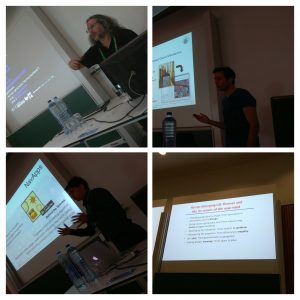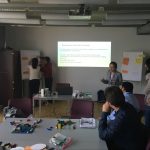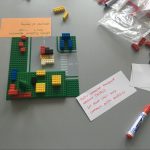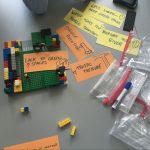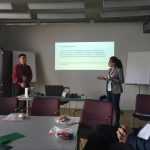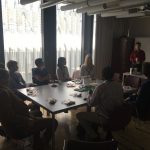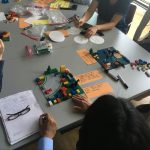Attending the Smart City Expo World Congress (SCEWC) is a common desire within ITC-related professionals and researchers, you find in a single place all commercial solutions, some customers showing their own experience with Smart City projects, some Experts discussing about future trends, and academics interested on meeting “Real” products to feed their own research.
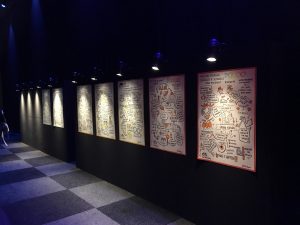
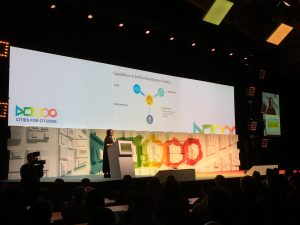
Between thousands of attendees there were seven Geotec members walking through Europa Fira, listening to interesting and motivational speeches, while digging into multiple ideas from entrepreneurs, local government agents, young researchers and well-known companies.
Most remarkable issues there at the Expo were related to:circular economy, sustainable mobility, open data and artificial intelligence. Regarding there were…
Discussion about Sustainable Mobility was a full track on the agenda, and walking/cycling experiences were presented everywhere, a mix of mobile apps, infrastructure plan, sharing/rented projects were presented. Main tendency is to have less private individual vehicles and more public and shared bicycles, therefore cycling infrastructure will be part of this transformation. The session “Walkable and cyclable cities” easily resumes those innitiatives.
SCEWC2016 offered a rich set of keynote speakers, but Parag Kanna’s presentation about connected cities had an important effect on attendees, his map-based speech showed future trends on urbanization and development of future cities (also smart). With a global view of connections he explained briefly how the world is showing us tendencies that must be attended, with his web tool those tendencies could be explored and analyzed.
Another interesting Keynote, gave by Susan Etlinger, was about how Artificial Intelligence and Machine Learning can be implemented in new solutions for cities, enhancing new developments such as image recognition, self-driving cars and conversational assistants.
Finally, the importance of sharing economy and governance of the city commons was presented by David Bollier. This alternative forms of creating economical development is rising on cities like Barcelona, looking to strengthen local business and entrepreneurship.
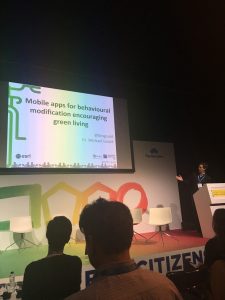
Prof. Michael Gould presented the preliminary results of the ESR07 project in the “Solutions for More Inclusive and Participative Cities (elevator pitch format)” track.
A full three days event is always exhausting, but attending during different days as a group will allow to identify multiple trends and development, this exercise helped Geotec on having a global look at state-of-the-art commercial solutions for Smart Cities.
ESR were also in contact with local partners from the program. Castellón City Hall representatives were present at the event, looking for solutions to improve the city. Also ESR15 shared experiences in the Urbiotica’s stand, who presented its solution to different stakeholders.
(*) Geotec Researches who attended the Smart City Expo: Fernando Benitez (ESR11), David Frias, Khoi Ngo (ESR06), Diego Pajarito (ESR07), Manuel Portela (ESR15), Luis Rodriguez, Sergi Trilles, Michael Gould.
